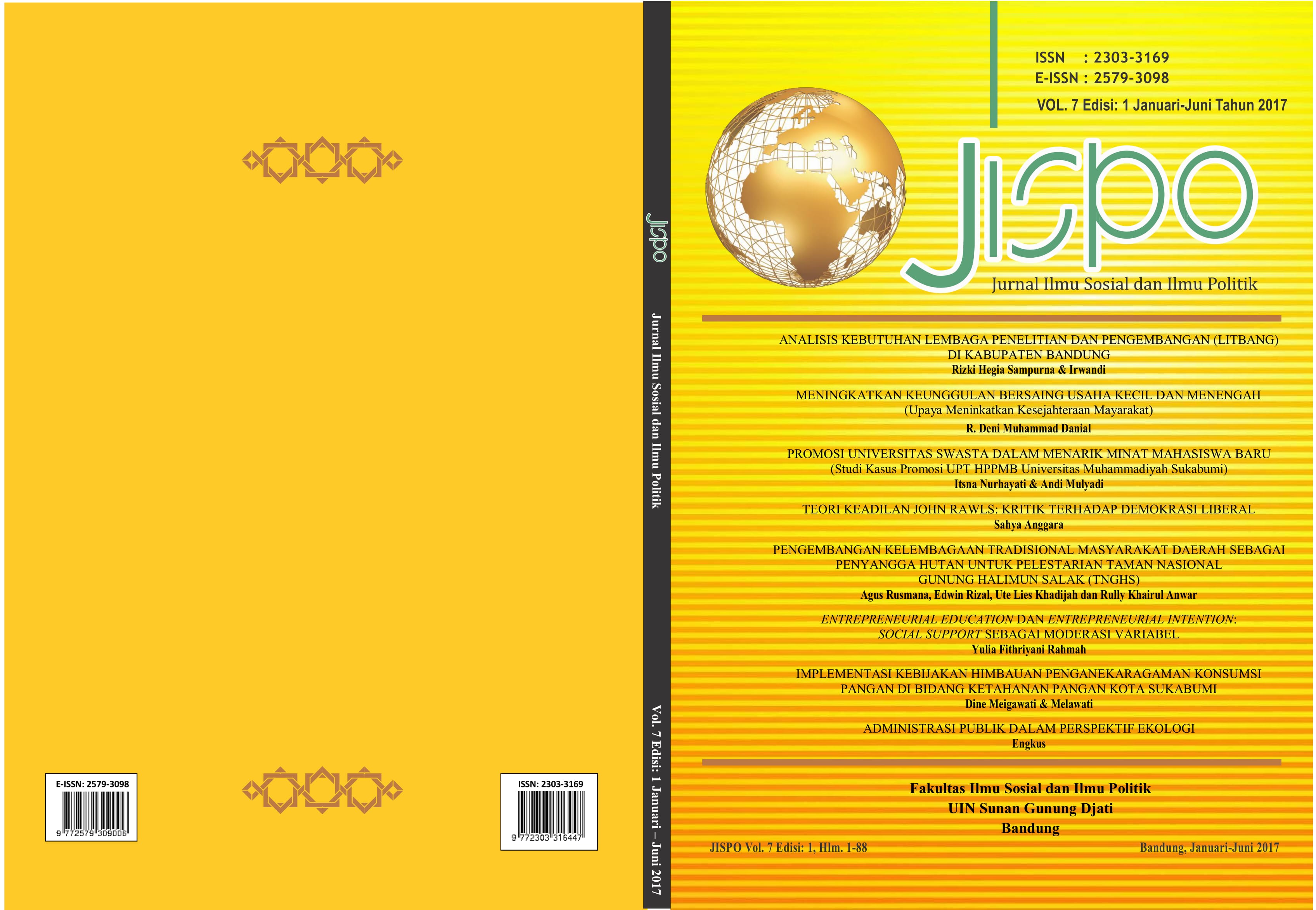THE IMPACT OF CASH TANSFER ON FAMILY’S ATTITUDE AND COPYING MECANISM
DOI:
https://doi.org/10.15575/jp.v7i1.1861Keywords:
Cash Transfer, Family’s attitude, Copying Mecanism CommunicationAbstract
References
Adams L. and E. Kebete. 2005. Breaking the Poverty Cycle: a Case Study of Cash Interventions in Ethiopia, Background Paper, Humanitarian Policy Group, London: Overseas Development Institute.
Bailey, S., Savage, K. and S. O‘Callaghan. 2008. Cash transfers in emergencies. A synthesis of World Vision‘s experience and learning. World Vision International.
Cross, T. and A. Johnston. 2011. Cash transfer programming in urban emergencies. A toolkit for practitioners. CaLP.
Devereux, S. and Jere, P. 2008. Choice, Dignity and Empowerment. Cash and Food Transfers in Swaziland. An evaluation of Save the Children‘s Emergency Drought Response, 2007/08.
Gentilini, U. 2007. Cash and Food Transfers: A Primer. Rome: World Food Programme.
Grindle, Merilee S. 2011. 'Governance Reform: The New Analytics of Next Steps', Governance 24(3): 415-418.
Hanlon, J., Barrientos, A. and D. Hulme. 2010. Just give money to the poor. The Development Revolution from the Global South. Kumarian Press.
Downloads
Published
How to Cite
Issue
Section
Citation Check
License
Authors who publish their manuscripts in JISPO agree to the following terms:
- Authors retain copyright and grant the journal right of first publication with the work simultaneously licensed under a Creative Commons Attribution-ShareAlike 4.0 International License that allows others to share the work with an acknowledgment of the work's authorship and initial publication in this journal;
- Authors are able to enter into separate, additional contractual arrangements for the non-exclusive distribution of the journal's published version of the work (e.g., post it to an institutional repository or publish it in a book), with an acknowledgment of its initial publication in this journal; and
- Authors are permitted and encouraged to post their work online (e.g., in institutional repositories or on their websites) after publication process, or prior to and during the submission process, as it can lead to productive exchanges, as well as earlier and greater citation of published work (See The Effect of Open Access).




.jpg)



